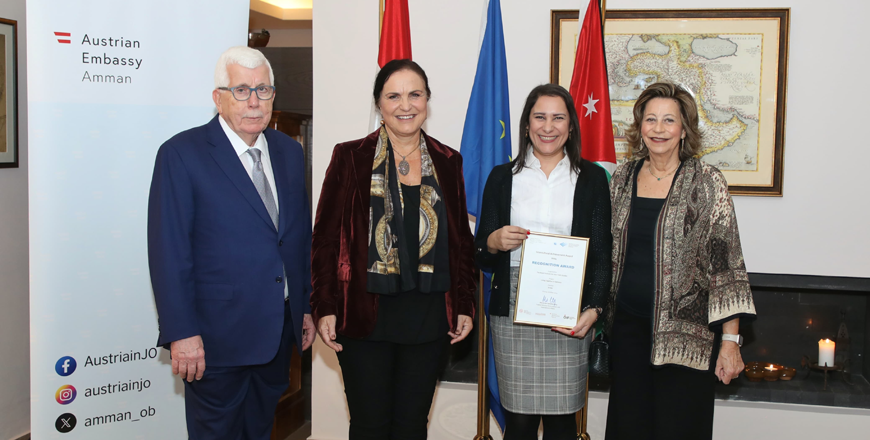You are here
‘Right answers, communication enough to dispel stereotypes’
By Suzanna Goussous - Sep 18,2015 - Last updated at Sep 18,2015

Young people meet in Amman as part of a cultural gathering to address intercivilisational issues on Wednesday (Photo courtesy of CCGC)
AMMAN — A group of young people from different countries came together to discuss regional and intercultural issues on Wednesday.
Calgary Centre for Global Community (CCGC) organised the discussion session at Shams El Balad Cafe, as part of a series of events aiming to improve intercultural dialogues and global citizenship.
CCGC is a Canada-based charity organisation that encourages intercultural dialogues to debate basic necessities and human rights of individuals.
The CEO of the organisation, Simmi Stanley – Bhanji, told The Jordan Times the project included a series of interviews over the past week with locals on the political situation in the Middle East.
“We even had the chance to talk to Syrian refugees in Jordan who suffered or are still suffering from the trauma. They shared their experience in detail and we started understanding the impacts of the conflict,” Bhanji said.
“People’s experiences stimulate empathy and awareness, it makes other citizens of the world want to do something,” she added.
The stories and some belongings shared by people residing in Jordan will be exhibited at a museum in Calgary in the first half of next year, according to Bhanji.
“One of the Syrian refugees gave us a pair of shoes he was wearing while fleeing his country, which will be showcased for the public at the museum with a voice recording of his experience, to put people literally in his shoe,” she said.
Stimulating empathy, to Bhanji, means generating the energy of change and gaining momentum, building and turning things around.
“… We wanted to take something from the Middle East with us back to Canada,” she added.
To Bhanji, war is not only about buildings being blown up, it is about how it affects people during and after the conflict.
In the two-hour-discussion, participants shared some personal stories of their experiences abroad.
Fidaa Musa talked about her experience as an Arab in Spain in 2002, after the bombings of the US twin towers.
“People do not know much about our culture; they only know what the media shows them. They used to be afraid of the way I dress, but with the right answers and communication they started understanding what we really are,” Musa told The Jordan Times.
She added that
Westerners often used to view all Arab or Muslim women as oppressed or uneducated “objects”.
Another participant, Sabrina Preston, who came from the US on a work-related mission, said the cultural differences, stereotypes and political views of each country depend on how the media covers the events.
“Many people back in America have wrong ideas on what the Middle East looks like; they often generalise the whole region because of a conflict in one country,” Preston added.
Eduardo Bunster, a Chilean participant said travelling and getting to know people and their cultures up-close drives a person to “give up” on the stereotypes and prejudice.
“Our judgements of other cultures often have nothing to do with reality, everyone has their own ideas based on experiences and how they deal with differences,” Bunster told The Jordan Times.
“Understanding conflicts in this part of the world makes me feel part of it and maybe responsible for other people’s traumas,” he added.
Related Articles
Terrorism and dramatic political actions in the world, particularly in the Middle East, have maximised negative stereotypes, false images of others and misunderstandings among a large portion of people worldwide.
AMMAN — The Anna Lindh/Ipsos Intercultural Trends Survey 2020, which included more than 13,000 people located in 13 European and Arab countr
AMMAN — The Royal Institute for Inter-Faith Studies (RIIFS) on Wednesday was honoured with special recognition for its "Living Together in H
















